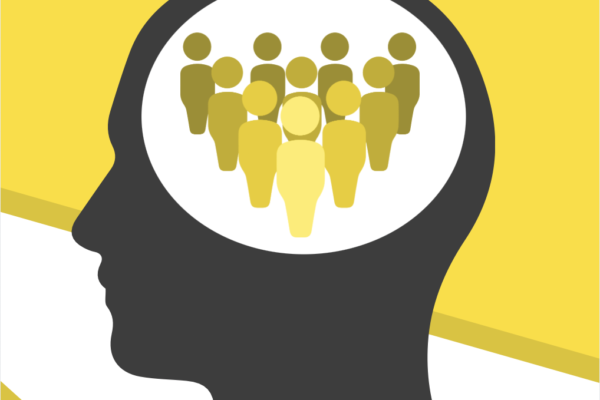According to the National Institute of Mental Health Disorders, about 1 in 4 Americans suffer from a diagnosable mental disorder each year and approximately 9.5 percent of Americans will suffer a major depressive illness. A way to combat poor mental health is to create strong bonds within the community. As the American Journal of Lifestyle Medicine states, “There is significant evidence that social support can help people maintain a healthy body mass index, improve cancer survival, decrease depressive symptoms, mitigate posttraumatic stress disorder symptoms, and improve overall mental health.”
Since community is a priority to people and people are a priority to the Army, the Army and Army Emergency Relief are urging the military community to “Connect to Protect” – in line with the Defense Suicide Prevention Office’s Suicide Prevention Month theme. This year’s campaign is about strengthening the bonds within the military community to result in each person being given a sense of belonging, support and purpose. Therefore, to ensure everyone has access to a community they need, listed below are resources for every member to find a community that best suits them.
USO Centers
These centers are located in over 250 places across the globe, providing Soldiers with a place to relax and build community. Whether it’s watching a movie in the lounge or calling a family member free of charge, Soldiers have a designated place to enjoy a time of rest and connection with their communities both overseas and on the couch beside them. They can choose to read a book on their own, or even send a recording of themselves reading a children’s book to their kids through the Bob Hope Legacy Reading Program.
Military OneSource
This organization provides a one-stop-shop for Soldiers and Families to find information and resources available to them with just a phone call anytime. Through Military OneSource, Families can receive financial counseling, health and wellness coaching, language translation services and more. They also offer 24/7 support by phone and online through free, confidential non-medical counseling. Tailored to the needs of each individual, peer support consultants have a master’s degree in psychology or in a social science field and firsthand life experience as service members or military spouses.
Warrior Care Program
The U.S. Special Operations Command Warrior Care Program helps Special Operations Forces (SOF) Wounded, Ill, or Injured Service Members and their Families recover, rehabilitate, and reintegrate as quickly as possible. They help through methods such as community outreach, fellowships, employment assistance, and retraining/educations.
AER’s Spouse Facebook Group
This group is a great way to connect with Army Spouses virtually. The goal of this group is to give Spouses 100 percent awareness about the programs and resources they have access to. Spouses can ask questions to the group, and those who carry the knowledge on those topics can answer their questions. In turn, responders can ask their own questions and receive answers. This structure helps Spouses build a community that not only has quick answers to their questions but also emphasizes the importance of community help from a place of experience and intentional care.
AER’s Spouse Empowerment Series
AER’s Spouse Empowerment Series is a quarterly call welcoming in Spouses and providing them with knowledge, resources, and community to aid them in the challenges that come with managing Military Family life. They discuss topics like PCS, employment, emergency planning, education, and more. In these talks, Spouses are shown that their struggles and stressors are shared among other Military Spouses and Families. As AER Military Spouse Ambassador and 2016 AFI Military Spouse of the Year, Krista Simpson Anderson said, “Oftentimes, we individualize our hardships, but… many other Spouses have probably experienced something similar.”
This sense of community gives Spouses a safe space to learn new, helpful information and introduces them to a community that will support them through it all. The next segment of this series focuses on food insecurity and will be taking place on November 10 at 12PM ET. The event will be co-hosted by Military Family Advisory Network’s Dr. Shelley Kimball, who will be sharing the pain points of Military Families and her experience in serving them and review the support and resources available to strengthen our Army community.
To register for this Spouse Empowerment Event, click here this link.
Army Community Services
Each installation has Army Community Services that help Soldiers and their Families obtain self-reliance, resiliency and stability. There are programs specifically geared to the needs of Army Families in action planning, team building, and advocacy. Community building is important in many of these services, and specific mental health help is also available.
Wear Blue: Run to Remember
This organization uses active remembrance to honor the service and sacrifices Soldiers make for Americans everywhere. Beyond this opportunity to reflect in an active way, this is a good opportunity for Soldiers and their Families to build a community by taking part in this powerful movement together.
Hidden Heroes
This organization provides 6000+ caregivers, in over 163 cities within 183 VA medical centers to support Military Families wherever they need it. The Hidden Heroes has an established resource directory and aims to inspire a community of caregivers to share their stories. Sponsored by the USAA Foundation, the institute’s 45+ courses cover topics such as financial literacy, mental health, and intimacy in hopes of helping caregivers balance their day-to-day responsibilities with vital self-care practices.
Military Kids Connect
This is a great site for Children dealing with the challenges of military life. It provides resources for military life, PCS, general wellness and mental health. This site encourages peer support through a message board where the youth can post questions and start conversations. The comments are reviewed by a subject matter expert and moderators to make sure the conversations are safe, healthy and helpful. There are also resources for Parents and educators to better understand where Children are coming from in a time of change and upheaval.
There is a broad range of sources to help Soldiers and their Families build a support system both before, during and after the challenges they face. There are many opportunities to choose from, whether it is participating in a Zoom or Facebook group or finding an in-person connection through volunteering or lounging. Community is of great importance in anyone’s life, but with the added challenges Soldiers and their Families face, it is even more important to invest in supporting and connecting with one another.
ICYMI: Join our conversation about the Importance of Community on Mental Health! We’re talking with Corie Weathers from Lifegiver.

